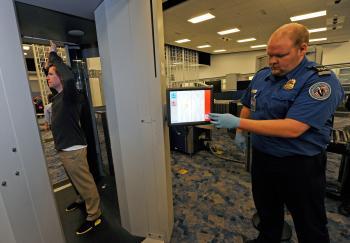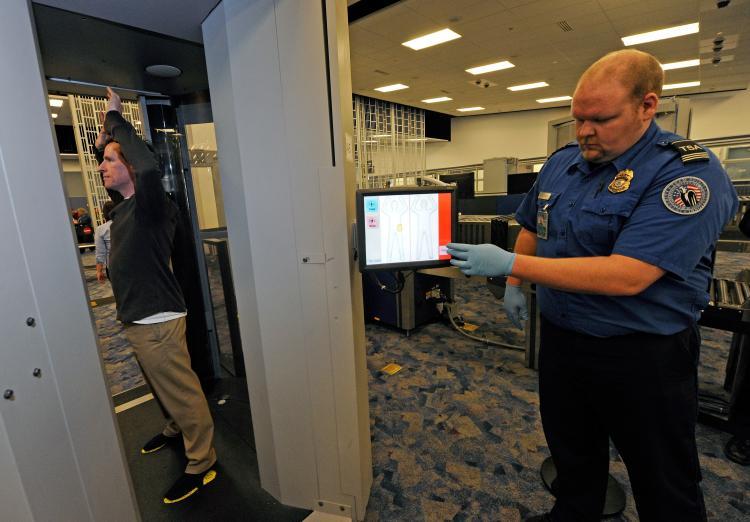A Mountain Reflection: Body Scanners Part II
The widespread deployment of body scanners in the nation’s airports caused quite a stir over the holiday season, but the issue has been brushed aside somewhat, in this ever-changing news environment.

SCANNER UPGRADE: TSA supervisor Nick Fox (R) and another TSA employee demonstrate an advanced image technology (AIT) millimeter wave scanner using new Automated Target Recognition (ATR) software being tested at McCarran International Airport in Las Vegas Ethan Miller/Getty Images
|Updated:





